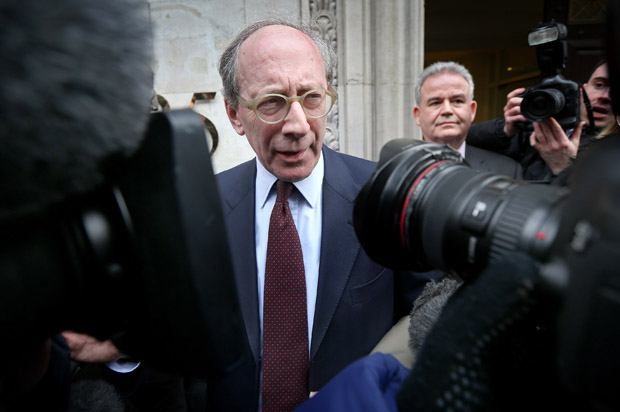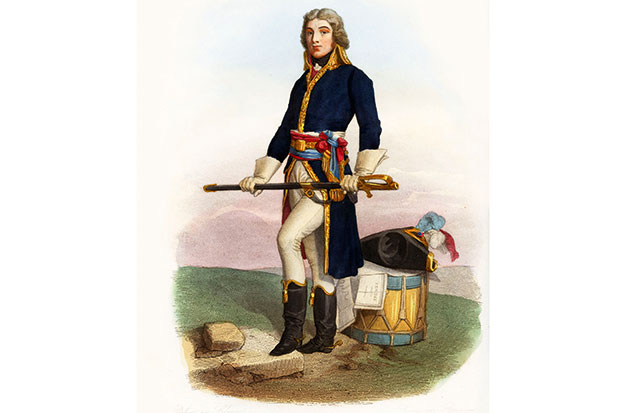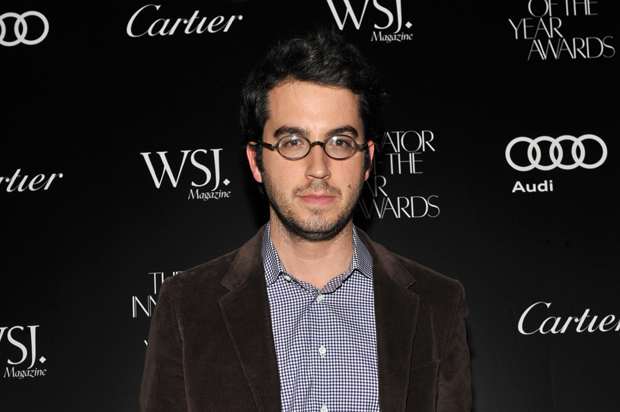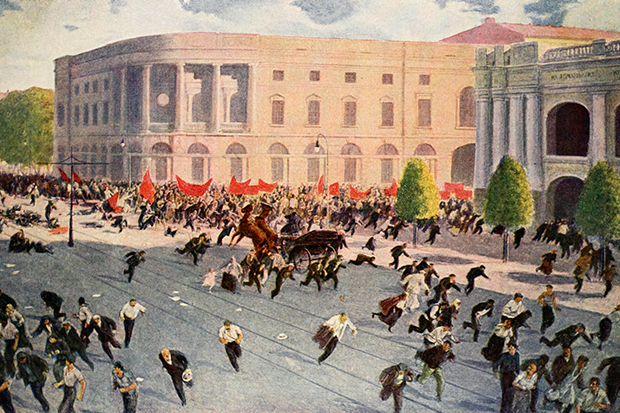Never speak on the same platform as Sir Malcolm Rifkind. I tried it once, at a Spectator debate held during the Scottish independence referendum campaign in 2014, and I will not be repeating the experience. The former Foreign Secretary spoke as usual without notes, and with such ringing clarity and confidence that all the other panelists were easily eclipsed. That included Kelvin McKenzie, the former editor of the Sun, speaking in favour of Scottish independence.
Sir Malcolm might just as well have recited the Edinburgh phonebook from memory, in his Jean Brodie tones, and the audience would still have cheered him to the echo. It was a magnificent performance from one of the best speakers of his generation. And yet, for all the brilliance, I can’t recall a single word he said.
That is the puzzle with Rifkind and it always has been, say his critics in the Tory party. For all his talents, it is difficult to divine what, if anything, he believes in. His skill as a debater helped him rise rapidly. He served more than a decade in the cabinet. But what did he want to achieve, other than to hold high office?
This memoir is an interesting, if sometimes unexciting, attempt to respond to the criticism and to explain a long career during which he was a minister continuously from Margaret Thatcher’s victory in 1979 until the Tory defeat by New Labour in 1997. At one point in Power and Pragmatism, he says that he is quite clear what he believes. Any reader who then expects a detailed explanation, taking in philosophy, or an excursion on economics or world affairs, will be disappointed.
He is, he says, first and foremost, in favour of two unions: the Union between Scotland and England (ongoing) and UK membership of the European Union (defunct). Beyond that, he’s a moderate, centrist Tory, interested in power and in making a practical difference.
At times he is so pragmatic and frustratingly discreet that it is difficult to follow which side exactly he was on, even when he explains it himself 40 years later. The account of his resignation from Thatcher’s shadow cabinet in 1976 over devolution left this reader confused. Not as confused as Thatcher ended up being about Scotland and Rifkind, of course.
In government, a role in the Foreign Office provided him with a ringside seat during the thawing of the Cold War, and at the famous talks between Thatcher and Gorbachev, about which he writes insightfully. From the Cold War he moved directly back into the hot war of Scottish Tory politics, as Scottish Secretary. After the 1987 election, in which the Scottish Tories were reduced to ten seats, Thatcher’s Lochinvar — her favourite, Michael Forsyth — was appointed party chairman. The Prime Minister then encouraged the anti-Rifkind forces in the party to set about the Scottish Secretary on the basis that he was, she said, a soggy centrist, unprepared to sell pure Thatcherism to sceptical voters in the land of Adam Smith’s birth.
Rifkind disputes this and says that he was simply trying to persuade her to recognise that Scotland is distinctive, and that sensitivity was required, although he backed the Poll Tax which drove the Scottish Left and most voters into a fury. After Thatcher’s spectacular fall in November 1990 Rifkind became a key minister under her successor, at Transport, Defence and the Foreign Office. Returning to the Commons for Kensington and Chelsea, he mounted an ill-advised bid for the leadership in 2005 when many newer Tory MPs had only a vague idea who he was.
Despite his claim here that he has no regrets about turning down a shadow cabinet post with the young Cameron in 2005, he should have taken it. It would almost certainly have led him back to a senior role in the coalition government, where he could have been a valuable cabinet minister with a trusted reputation.
That reputation was tarnished in a media sting before the 2015 general election. He was cleared of taking cash for access, although he stood down from the Commons at the election. It would be unfair if that foolish episode was the last word on a distinguished career. But it is difficult, certainly as a Scot, to avoid sadness at the fading of Rifkind’s generation, especially when one considers how (with a few exceptions) the quality of Scotland’s leading politicians has declined so alarmingly.
Rifkind is part of that remarkable 1960s and 1970s crop produced by social mobility and student debating. Some — including Labour’s John Smith — were sent to the finishing school that was the Scottish Bar, where in court they learnt about life through defending Glaswegian murderers. Their successors at Holyrood are mainly murder to listen to. The creation of the Scottish parliament had the opposite effect from that intended by the devolutionists. It diminished Scotland.
The post No regrets, really? appeared first on The Spectator.
Got something to add? Join the discussion and comment below.
Get 10 issues for just $10
Subscribe to The Spectator Australia today for the next 10 magazine issues, plus full online access, for just $10.
You might disagree with half of it, but you’ll enjoy reading all of it. Try your first month for free, then just $2 a week for the remainder of your first year.














Comments
Don't miss out
Join the conversation with other Spectator Australia readers. Subscribe to leave a comment.
SUBSCRIBEAlready a subscriber? Log in